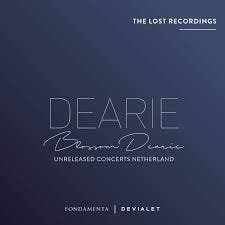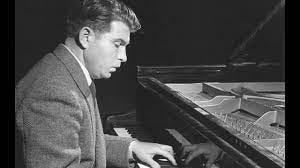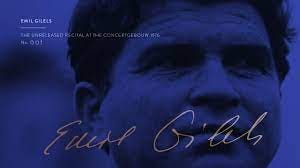Another Trip from Lost to Found
A label called The Lost Recordings revives the timeless notion of responsible custodianship
The marketing strategy for The Lost Recordings, a European reissue label that specializes in previously unreleased live recordings, is unapologetically aimed at record snobs. The ones with money.
Many of its vinyl releases are limited runs. The records are made with premium 180-gram vinyl. The packaging is hefty, the cover art centered around beautiful embossed reproductions of the artists’ signatures. The message: These works, which have been lovingly restored after years languishing in dusty concert-hall attics, demand your full attention.
There’s even a short video that chronicles the label’s fastidious manufacturing process.
This won me over. It’s inspiring to witness the ingenuity of sound-obsessed German technicians who’ve retooled vintage manufacturing equipment to modern specifications. The clip may be pure marketing, but there’s something encouraging about a purveyor of music standing so firmly on the side of quality. Insisting that in the exact same way the quality of the performance mattered to these artists long ago, the rendering of it needs to be done with a certain care. That the spirit of responsible custodianship, from one generation to the next, endures.
The Lost Recordings online store lists a number of titles, mostly classical and jazz, featuring such luminaries as Thelonious Monk, Oscar Peterson and Claudio Arrau. Very few are available on streaming services – one exception is a terrific Sarah Vaughan concert at the Berlin Philharmonic from 1969.
Vaughan has been thoroughly documented in performance – some of her most enduring albums are live ones – but still, hearing the textural dimension of her vocal instrument in this hall, with its wonderful natural ambience, is an experience not to be missed.
Less compelling sonically is the Lost Recording I purchased recently, a recital by the Russian pianist Emil Gilels from Amsterdam’s famous Concertgebouw in 1976. Though captured accurately, the piano seems just a touch far away; perhaps the restoration process required a sacrifice in proximity, or a slight dip at the extreme frequencies.
That’s almost an inevitable sonic quibble with older source material, and it doesn’t matter very much. Because what’s here, in the music, is the astonishingly uncomplicated sound of mastery. At the time of this performance, Gilels was regarded as one of the world’s greatest concert pianists – among his prized possessions was a medal and diploma given to him by pianist and composer Sergei Rachmaninoff to symbolize Gilel’s place in the pianistic firmament.
Gilels possessed the requisite technical skill to earn such a strong endorsement, and there’s evidence of it throughout this recital. One example comes with his flourish of scampering broken chords in the opening of Beethoven’s Piano Sonata No. 25: Gilels pushes the theme into a whirlwind of sound, taking it right up to the edge of dizziness. Yet his pulse never strays; he never loses control of the narrative.
The recital offers more than just fireworks, however. Its quiet moments show Gilels’ ability to “sing” through the piano, at a whisper. He uses dynamics and shading to highlight the melodic richness of the Brahms Ballades, and accentuates the deliberative nature of Beethoven’s slow moments by interpreting them delicately, with quiet concentration. At times during the second movement of Sonata No. 27, it almost sounds like Gilels is alone (save for the coughing), grappling with the great composer’s spiraling secondary themes in a desolate studio.
There’s lots of great music on this one release, which is part of a series of five Gilels concerts that have been restored by The Lost Recordings. I’m curious to hear the other ones, because of the intensity of the 1976 performance and also because of the demanding nature of the programs. On this one night, Gilels played three Beethoven sonatas and the Brahms Ballades, offered a transfixing reading of Schumann’s Arabesque and brought powerful lightness to a dense Prokofiev prelude.
Gilels renders each piece with clarity and authority, and a humble, distinctly unflashy form of musical grace. He takes great care showing us how he thinks the tunes should go, and we’re lucky to be able to encounter him at work in this way, on ordinary performance nights that, all these years later, sound anything but ordinary.
Why yes, we have a fancy digital suggestion box. Share your favorite Underloved/Overlooked records here: echolocatormusic@gmail.com.
Please consider subscribing (it’s free!). And…..please spread the word! (This only works via word of mouth!)







